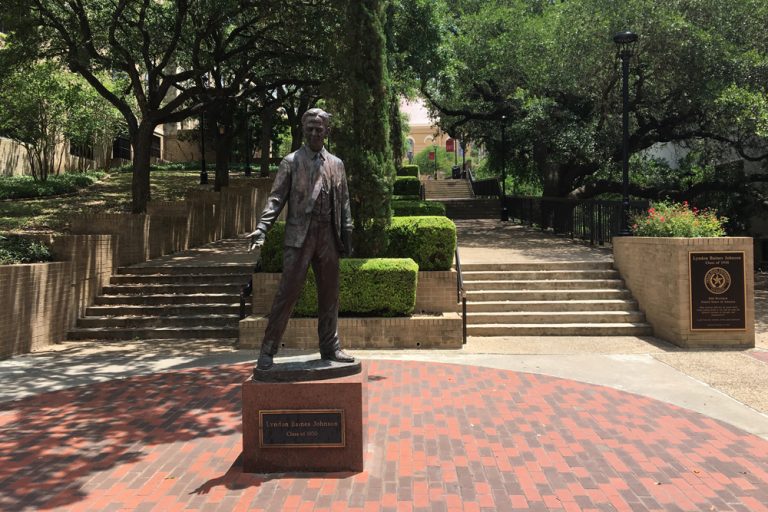

SAN MARCOS – When SpaceX-21 launches for the National Aeronautics and Space Administration (NASA) on Dec. 5, a Texas State University experiment that could have lasting impact on spaceflight systems safety will be a part of the mission payload.
Robert McLean, Texas State University System Regents’ Professor and a professor in the Department of Biology at Texas State, is the principal investigator for the Bacterial Adhesion and Corrosion (BAC) spaceflight experiment, with Arizona State University’s Cheryl Nickerson serving as Co-PI.
Sridhar Gorti of NASA’s Marshall Space Flight Center and Dennis Leveson-Gower of NASA’s Ames Research Center are the mission scientists, and the payload was developed by BioServe Space Technologies at the University of Colorado.
The BAC is a continuation of McLean’s 2016 project with NASA to study polymicrobial biofilm growth during spaceflight.
McLean is assisted in his research by Starla Thornhill, who recently defended her Ph.D. and will be continuing her post-doctoral work at Texas State.
BAC is supported by NASA’s Materials Science program.
The behavior of microorganisms in microgravity is poorly understood, McLean explained, and an experiment of his flown on the space shuttle in 1998 provided the first evidence that biofilms could even form in microgravity conditions.
Aboard the International Space Station, bacterial colonies form biofilms in filtration systems that are resistant to disinfectants.
Common examples of biofilm on Earth include plaque that forms on teeth and slime that grows on river rocks.
Unchecked, these biofilms can lead to clogs and, potentially, corrosion in critical systems.
The experiment will study the effect of spaceflight on the formation of multi-species, biofilm-forming bacterial communities, their ability to corrode stainless steel surfaces like those on the space station’s water system, and the effectiveness of disinfectants to clear these biofilms.
Evidence indicates mixed-culture biofilms behave quite differently from those formed by a single culture.
For several years, McLean and Thornhill have studied growth of E. coli and Pseudomonas aeruginosa bacteria in the laboratory under simulated weightless conditions of space to develop comprehensive baseline data.
With that study complete, the next step is direct research aboard the space station itself.
The mission is expected to last approximately 35 days onboard the space station and a simultaneous ground control will also be performed so that the experimental results can be accurately compared.
After the return of the samples, McLane’s study will use next-generation RNA sequencing technology to help identify which bacterial genes are involved in biofilm growth and corrosion of stainless-steel surfaces in microgravity as well as full gravity conditions.
Light and electron microscopy will also be sued to characterize biofilm structures, the distribution of the two bacteria in biofilms, and any corrosion.
Biofilm formation is also an important characteristic in the infectious disease process of microorganisms.
Accordingly, the inability to control microbial biofilms during spaceflight can result in damage to life support systems and poses a serious health risk to astronauts.
Findings from the BAC study will help to improve NASA’s understanding of multi-species biofilm formation on life support systems and their efficacious treatment both in microgravity and on Earth.
This will allow researchers to continue to develop mitigation strategies and countermeasures for the health risks that humans face in space and on Earth.
The San Marcos City Council received a presentation on the Sidewalk Maintenance and Gap Infill…
The San Marcos River Rollers have skated through obstacles after taking a two-year break during…
San Marcos Corridor News has been reporting on the incredible communities in the Hays County…
Visitors won't be able to swim in the crystal clear waters of the Jacobs Well Natural…
Looking to adopt or foster animals from the local shelter? Here are the San Marcos…
The Lone Star State leads the nation in labor-related accidents and especially workplace deaths and…
This website uses cookies.